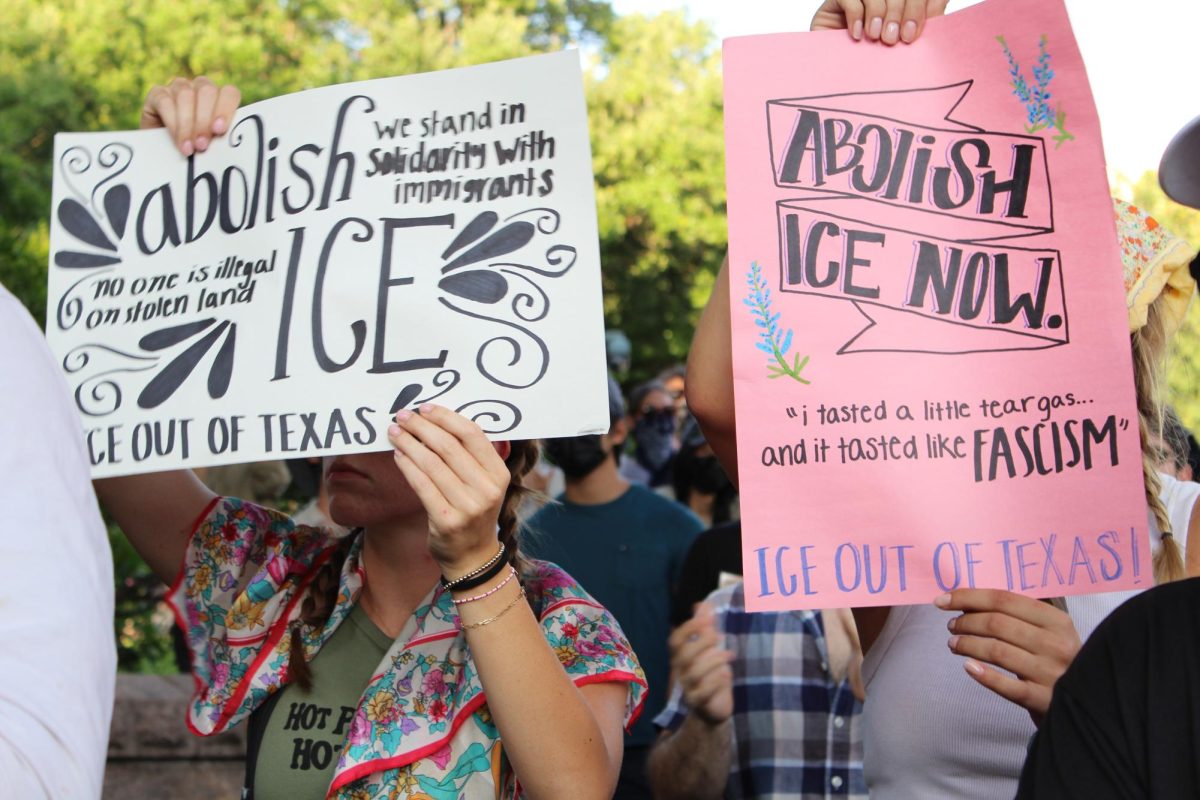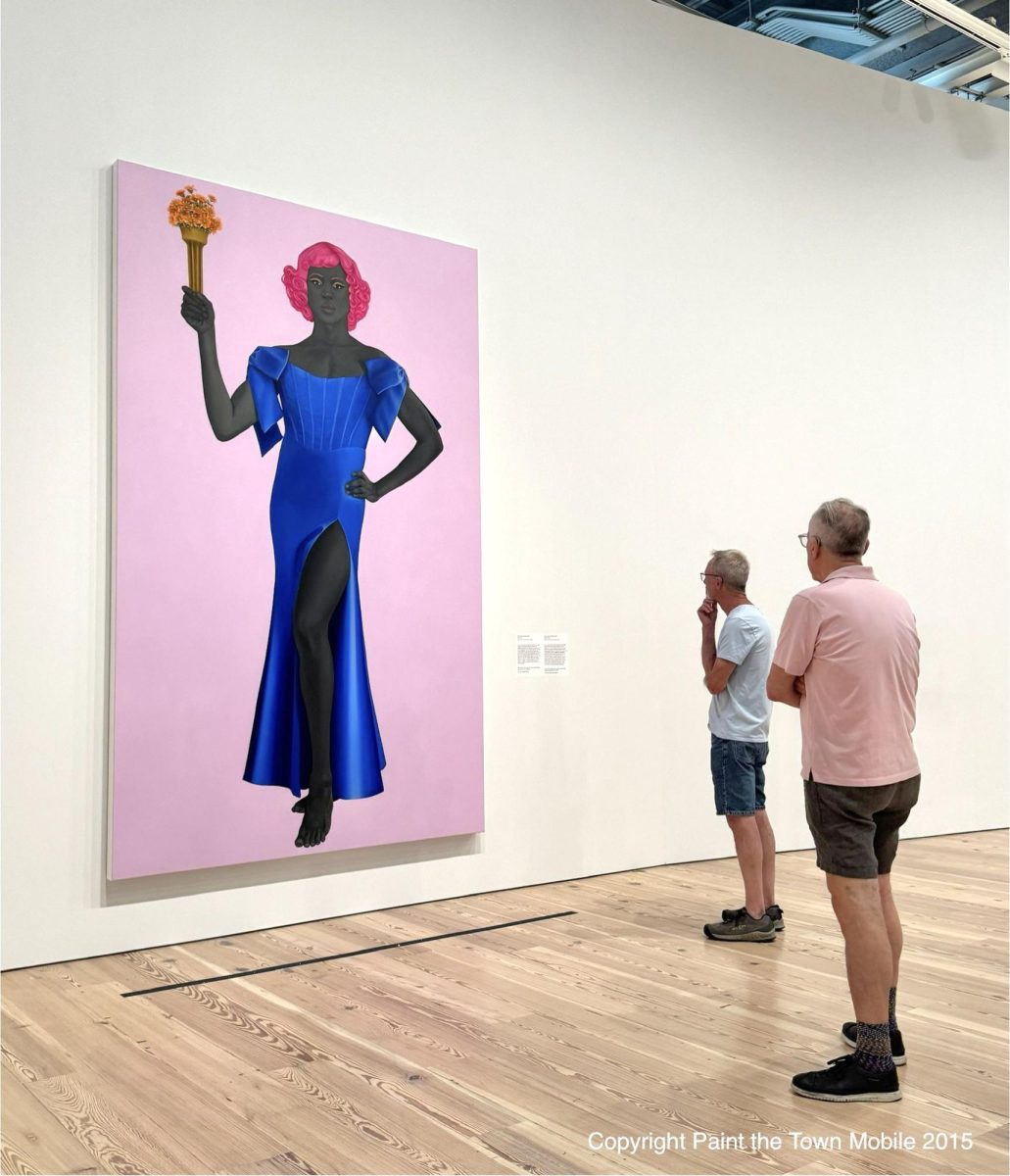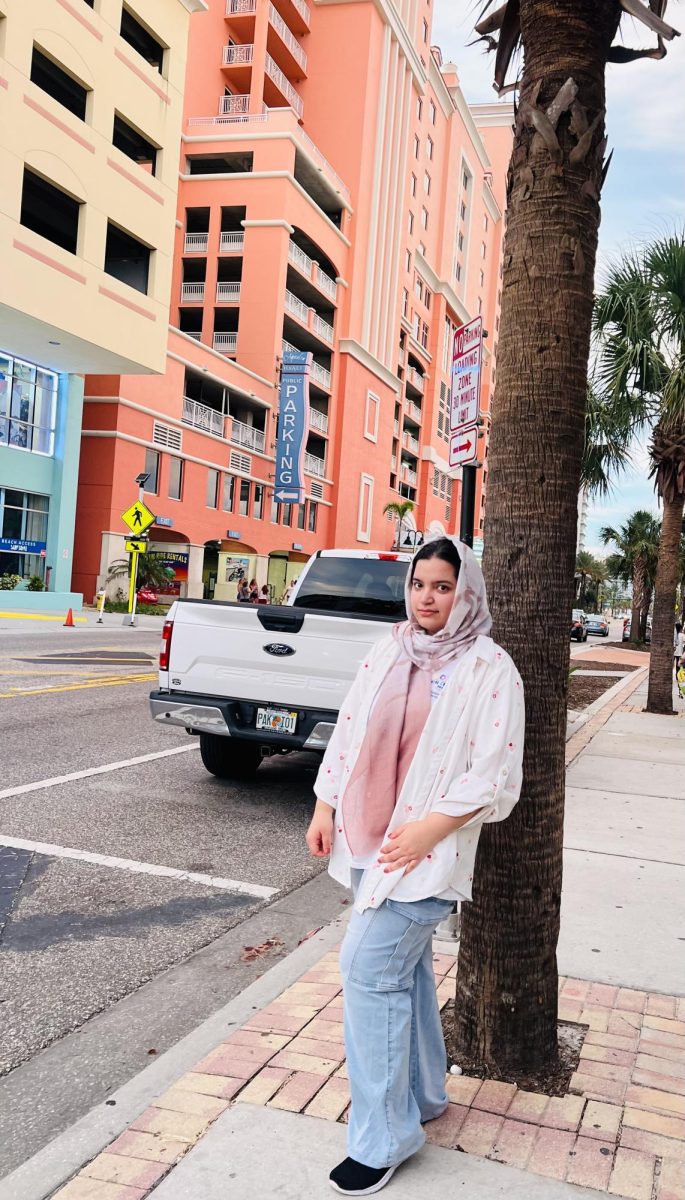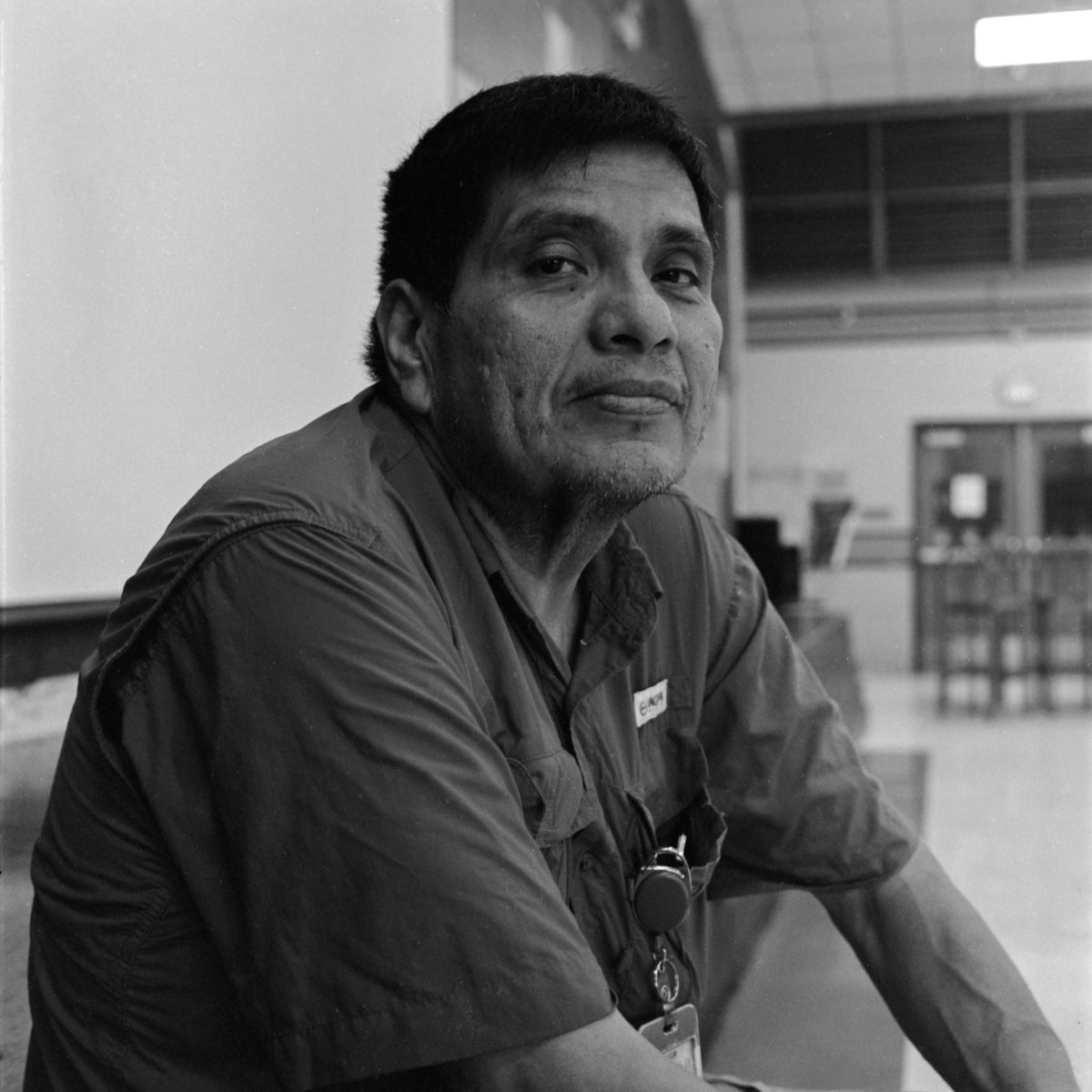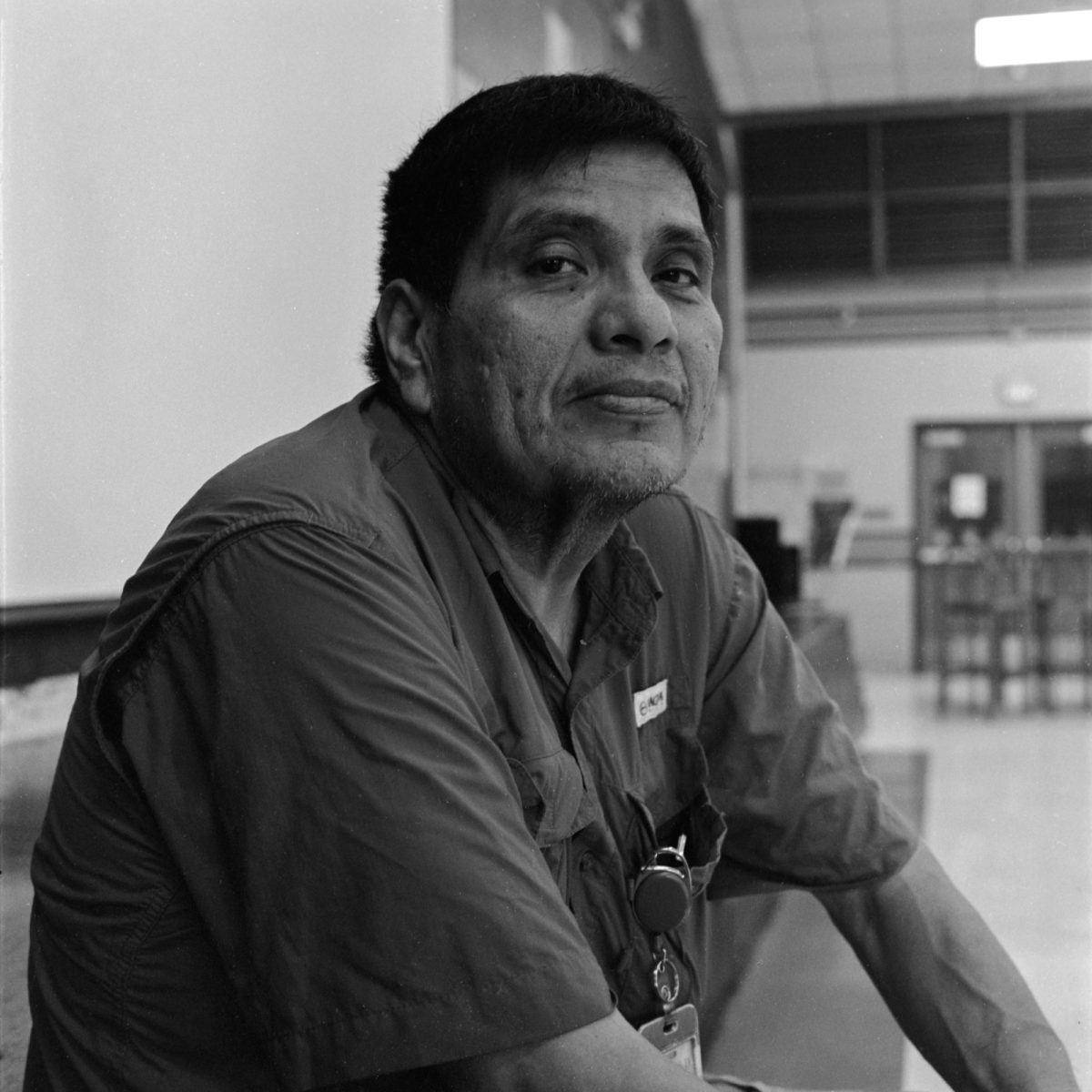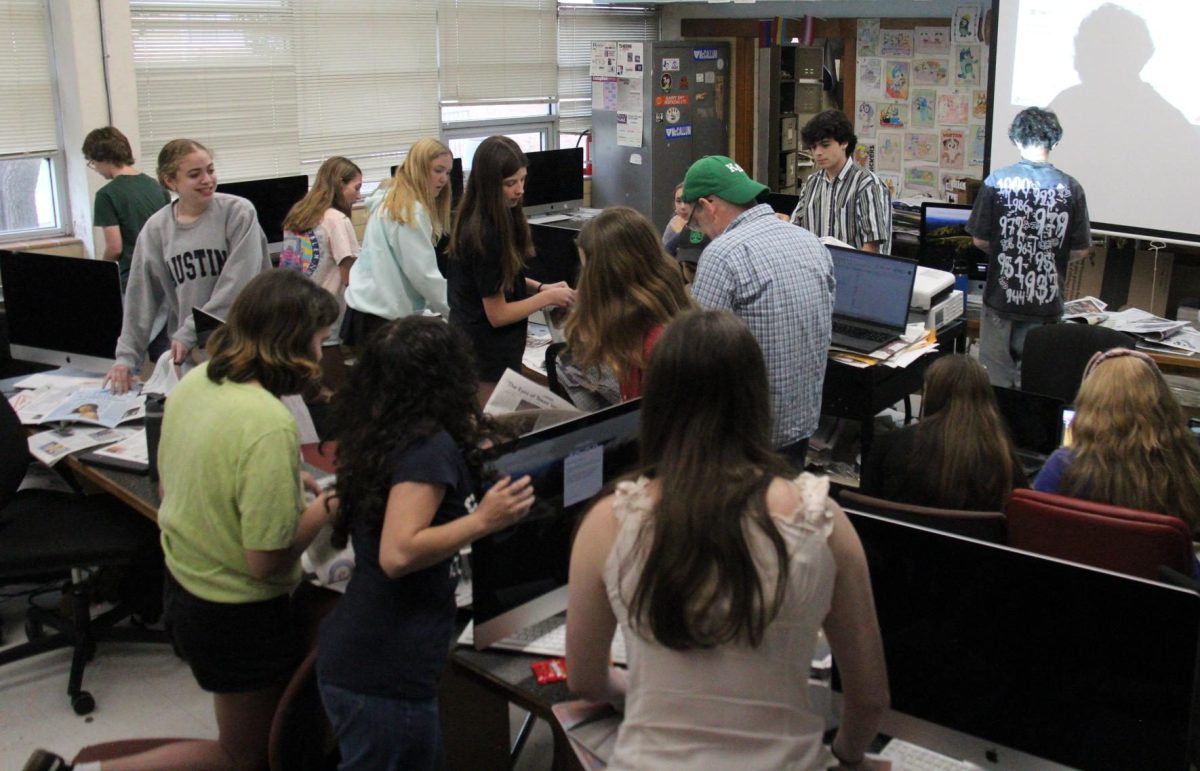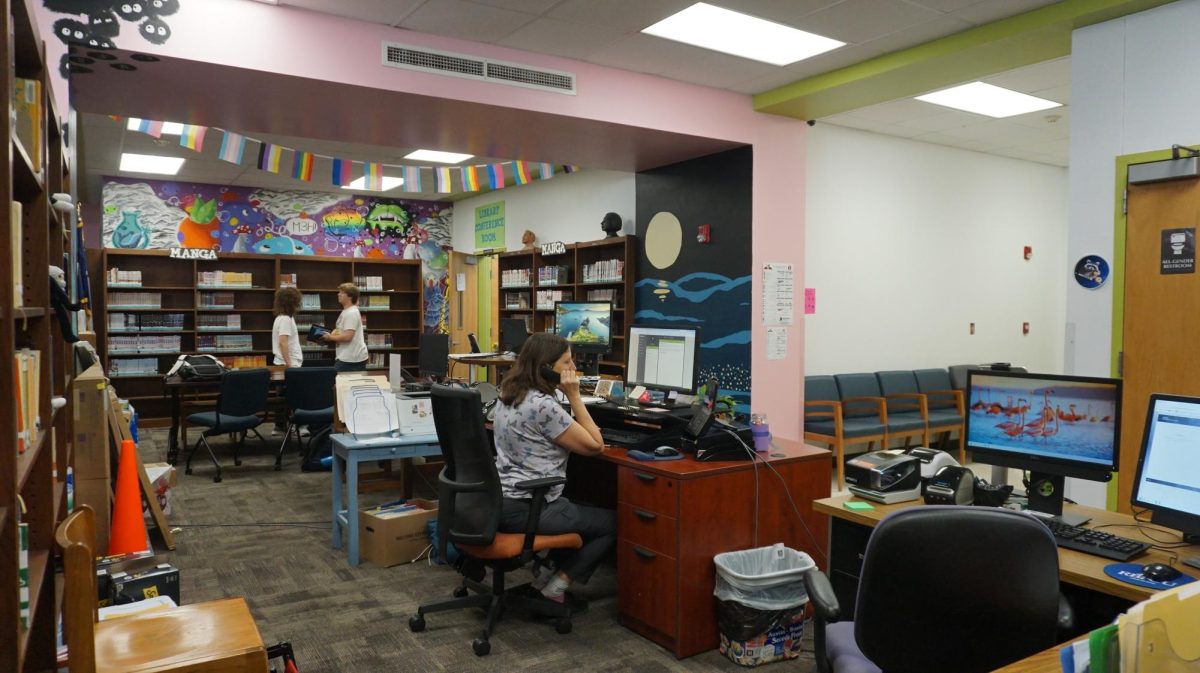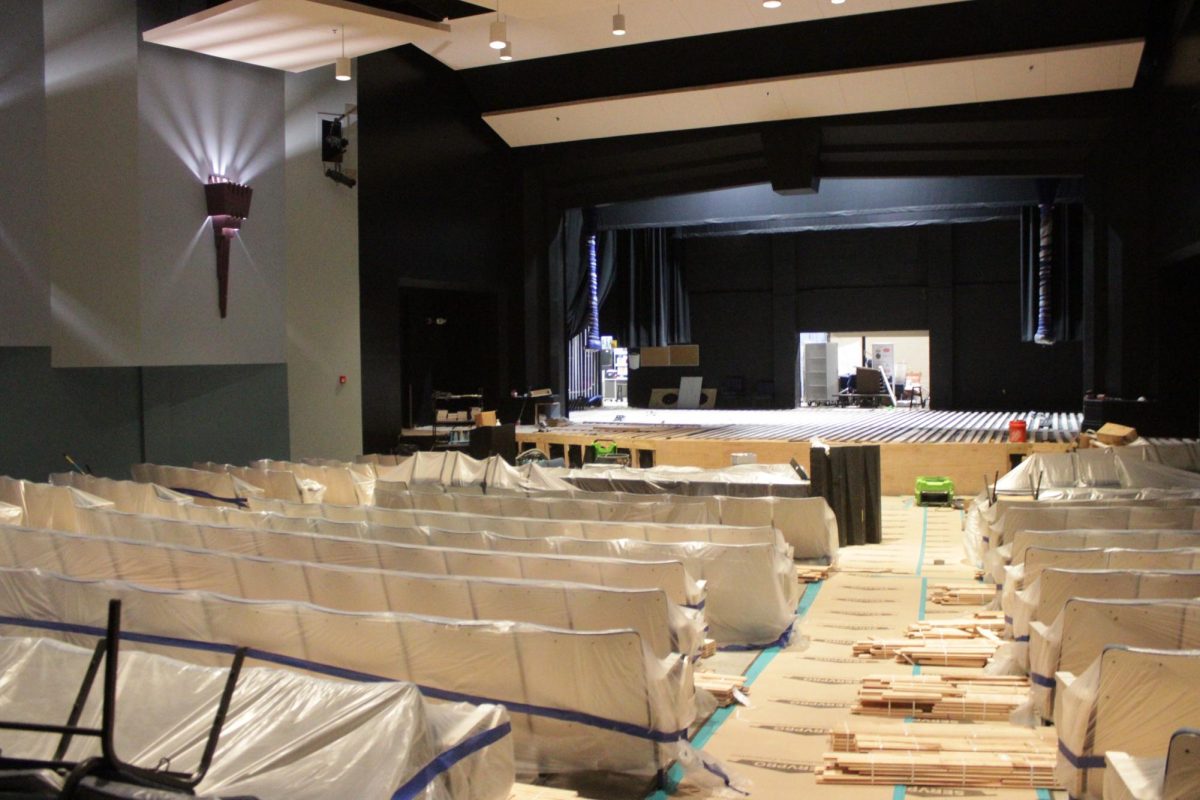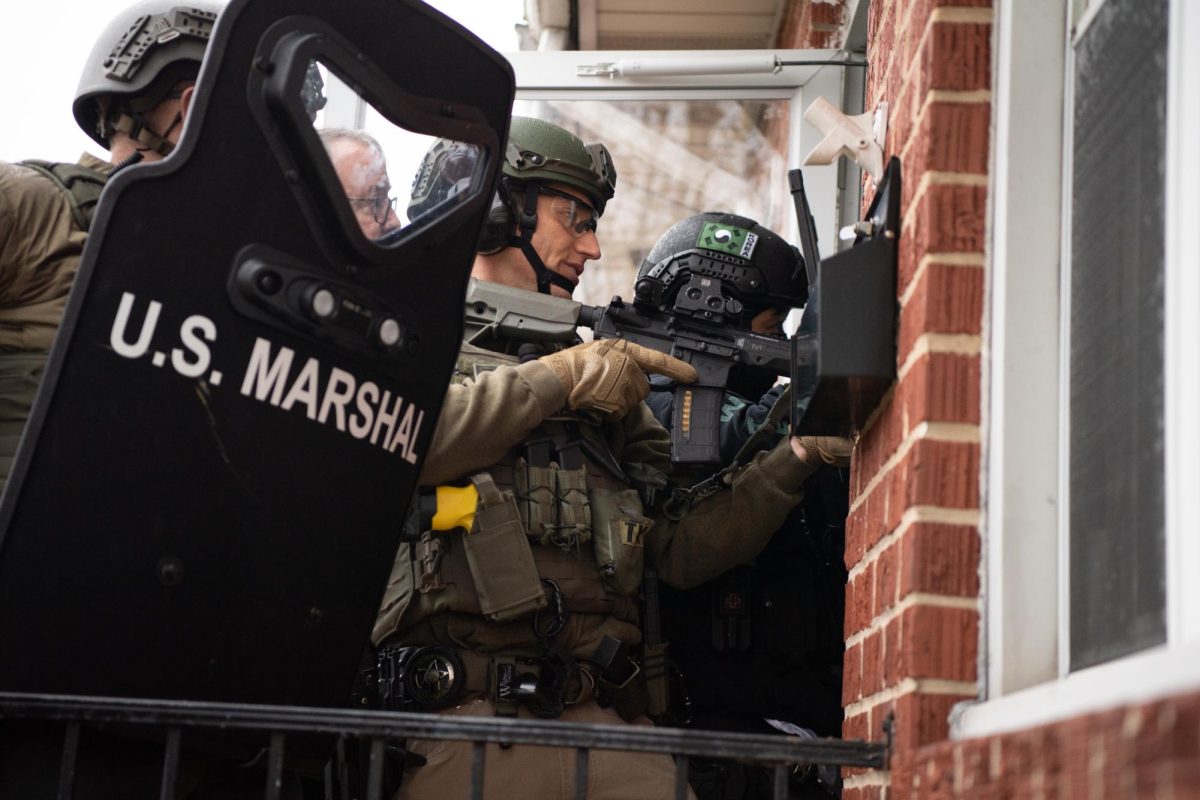An anti-Immigration and Customs Enforcement protest at the Texas Capitol at 7 p.m. Monday evening led by the Party for Socialism and Liberation devolved into violence, with local police using tear gas and pepper spray on protesters who vandalized the JJ Pickle Building, according to KXAN. The protest was organized in solidarity with undocumented immigrants in Los Angeles after ICE raids commenced with rapid force in LA last week. Anti-ICE protests in Los Angeles are ongoing, and President Donald Trump deployed 300 National Guard troops to quash the protests on Sunday in response.
The Austin protests started at the Capitol and gradually moved to the JJ Pickle Building, where ICE processes local undocumented immigrants. Several PSL organizers gave speeches stressing liberation of the working class and connected the conflict in Gaza to domestic ICE raids. A heckler interrupted several of these speeches, accusing protesters of wanting “open borders” and was eventually apprehended by state troopers. Before they were apprehended, the Shield recorded them on video saying the following.
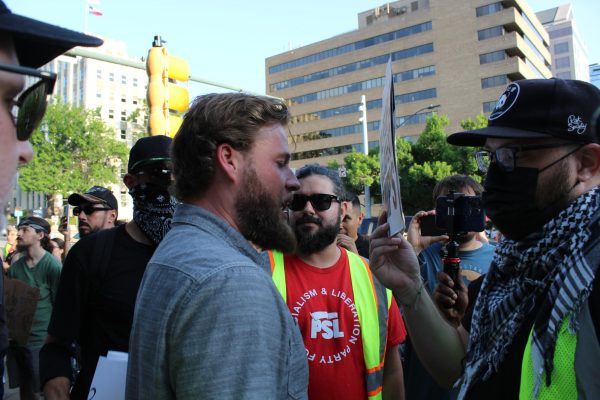
“They kicked me out because I’m white,” the heckler said. “These are the people with a closed mind. These are the people who can’t handle a debate, who can’t handle a discussion, who can’t handle anyone disagreeing with them, and really, they don’t even know what they’re doing here.”
According to Beo Lerman, a Class of 2018 McCallum alumnus and member of the PSL, the issue of mass deportations isn’t a discussion or a debate. It’s a matter of national urgency.
“Since President Trump has been in office, he’s been trying to escalate the deportation machine, which has existed under every president, especially since 9/11,” Lerman said. “This has really escalated tensions in LA, where people saw innocent people being deported.”
Lerman said that while the protesters wanted to stand in solidarity with fellow protesters in Los Angeles, they were also keenly aware of ICE’s actions within Austin. Lerman advised McCallum students to know their rights in the face of cops and in the face of ICE, whether they are or aren’t citizens, in order to stand up for themselves and/or their fellow students.
“People are being snatched,” Lerman said. “It’s unfair, and it’s a form of violence. We all have our rights under the First Amendment. Everyone has the right to due process, regardless of citizenship status, and if you see something bad happening, you’re not alone in seeing that. Only if we step forward together can we make a change and finally put an end to this deportation nightmare.”
Norma Saucedo, a fellow protester who brought her young son to the event, concurred with Lerman on the importance of community resistance to ICE. Saucedo, who is Mexican American and an immigrant herself, spoke to how mass deportations spark fear in her community.
“They’re afraid to go to work,” Saucedo said. “They’re afraid to get stopped by ICE and get deported. I have family members who were stopped by ICE, and they were in jail for a few months. That’s why we’re here.”
Saucedo considers her family members fortunate, as they emerged from the detention center physically unscathed. But she said the mental toll is extreme. Saucedo expressed immense frustration at the lack of legislative response to the ICE raids, and said that one day she hopes a bill will be passed that expedites the legal immigration process.
“I explained to my son what’s happening right now, and he agreed to come with me,” Saucedo said. “I want him to know his rights and to protest peacefully. We have to keep fighting for immigrant rights.”
A protester in his 20s who asked to remain anonymous said that he joined the protest because the majority of his friends’ parents are immigrants, both documented and undocumented. The protester said that the ICE raids represent how America is failing to live up to its historical ideals.
“They come to this country only because it’s promised to be the land of the free,” he said. “If America is supposed to be such a great country that encapsulates that idea, then what are we doing trying to abolish these rights and deport people without trial?”
The protester used the March 15 deportation of Kilmar Abrego Garcia, a Salvadoran immigrant with withholding of removal status, as an example of deportation without trial. Withholding of removal essentially means that an immigration judge or the U.S. Attorney General allows undocumented immigrants to reside in the U.S. if they can prove a reasonable or credible fear of violence in their home country—even if the undocumented person in question has been deported before. In Abrego Garcia’s case, the threat was gang violence.
“In our Constitution, the right to a fair trial is something we all have,” the protestor said. “If there wasn’t as much activism as there was, he’d be as good as dead. Now, he’s coming back home. We the people have a duty to stand up to tyranny in our government. I see my government acting like a dictatorship, so it’s my duty to stand up and make a difference.”


